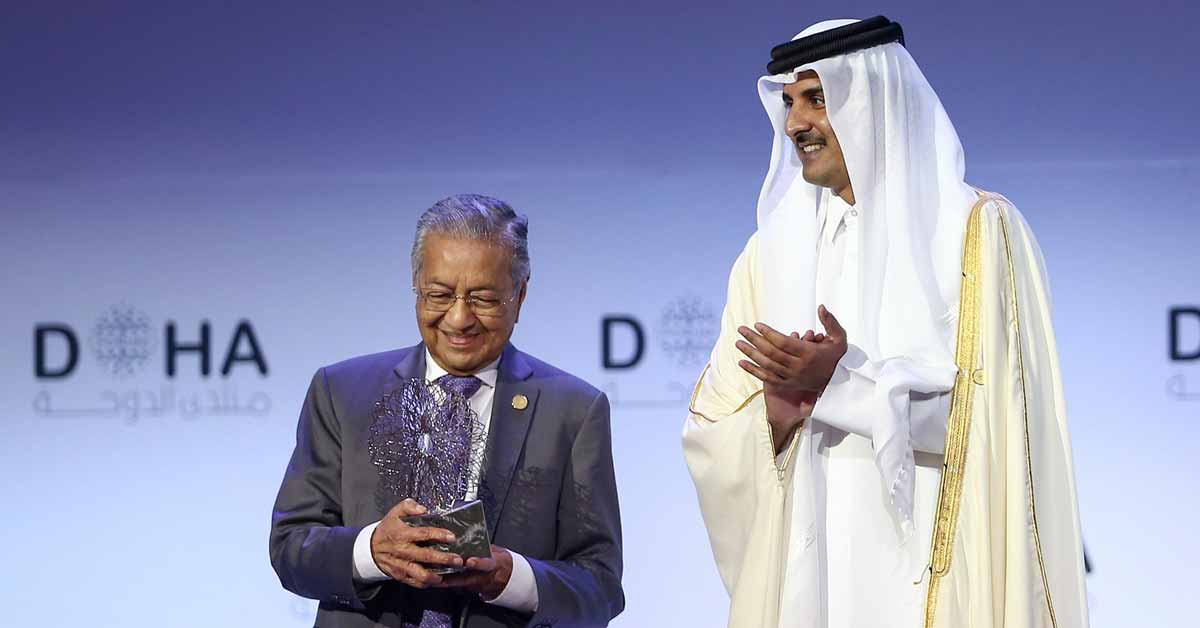Malaysia will this week host a summit of Muslim leaders billed as a forum to look at the Islamic world's problems, but it will be closely watched for Middle East power plays and their stance on China's Uighur minority.
Leaders from Iran, Turkey, and Qatar will be among hundreds of delegates attending the three-day event set to discuss myriad challenges faced by Muslims.
The summit has been pushed by Malaysian Prime Minister Mahathir Mohamad, who has long championed greater solidarity among the world's Islamic communities - and wants to boost his country's standing on the international stage.
A key question is whether China's treatment of its mostly Muslim Uighur minority, many of whom have been sent to "re-education" camps, will be raised after Islamic leaders faced criticism for largely remaining silent on the issue.
In a statement ahead of the forum, Mahathir's office said the Muslim community was suffering due to "the incarceration of millions (who) are placed in detention camps, civil wars resulting in total destruction of cities... the rise of Islamophobia".
With no high-level Saudi delegation coming but the President of arch-rival Iran and the emir of Qatar - under a Riyadh-led blockade - in attendance, there has been speculation the forum could be used to counter the kingdom's influence.
Also present is Turkey's President Recep Tayyip Erdogan, whose ties with Riyadh have worsened in recent times.
Saudi Arabia's King Salman was invited but is not coming, Malaysian officials say.
The meeting comes against the backdrop of high tensions between the kingdom and Iran, the Middle East's leading Sunni and Shiite powers, after assaults on oil tankers and installations in the Gulf.
Challenge to the Saudis?
Analysts Giorgio Cafiero and Khalid Al-Jaber, in a commentary for the Middle East Institute think-tank, said some Muslim-majority countries were uncomfortable with Saudi Arabia due to de facto ruler Crown Prince Mohammed bin Salman's rise.
The Kuala Lumpur summit could "serve as an alternative to the Jeddah-headquartered Organization of Islamic Cooperation (OIC), which is under Saudi Arabia's de facto leadership", they said.
But Mahathir's office swiftly rejected the suggestion, insisting the summit "is not intended to create a new bloc".
There have however been signs Riyadh is unhappy about the event, with Pakistani Prime Minister Imran Khan cancelling his attendance after travelling to the kingdom at the weekend, reportedly to assuage his ally's concerns.
While calls have been growing for the summit to address the Uighurs' plight, analysts believe leaders are unlikely to take a hard line for fear of damaging vital economic ties with Beijing.
They are seen as more likely to condemn the treatment of Muslim Rohingya in Myanmar - who fled their mostly Buddhist homeland in droves in 2017 after a bloody military crackdown - and the Palestinians, which would come at a lower cost.
Following the summit, Iran's President Hassan Rouhani heads to Japan on Friday in the first trip to the country by an Iranian head of state for two decades, official news agency IRNA reported.
For 94-year-old Mahathir, the world's oldest leader and in his second stint as premier, the most important outcome could be boosting Malaysia's international reputation which suffered under a corruption-mired regime that was ousted last year.
The summit is "a vehicle to return (Mahathir) and Malaysia into a position of prominence in the Islamic world," said Shahriman Lockman, an analyst from Malaysian think-tank the Institute of Strategic and International Studies. – AFP
